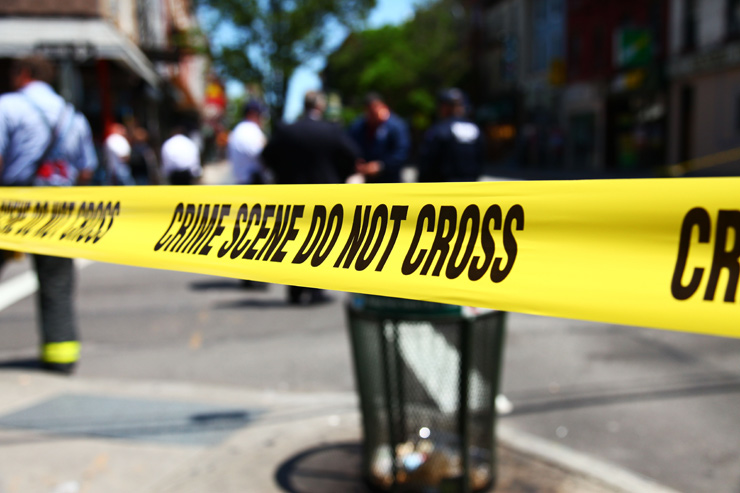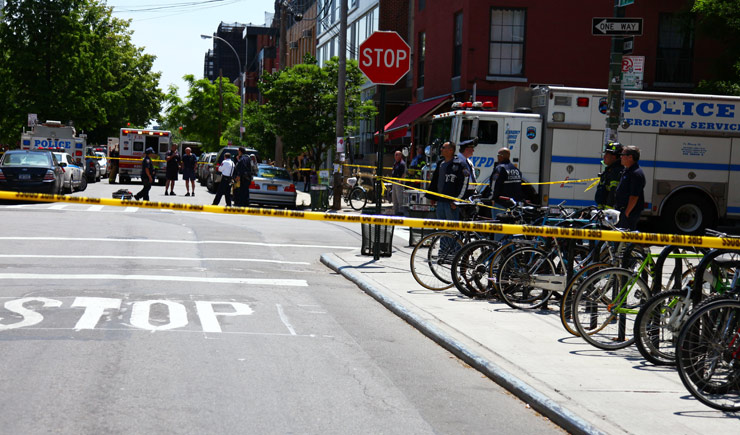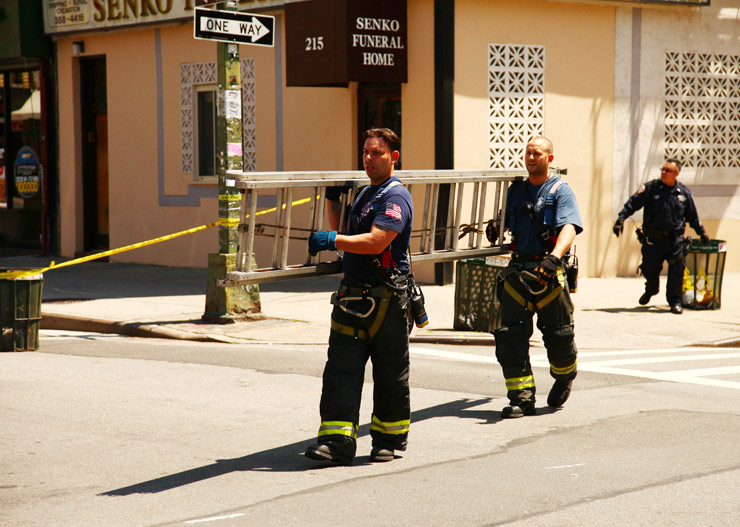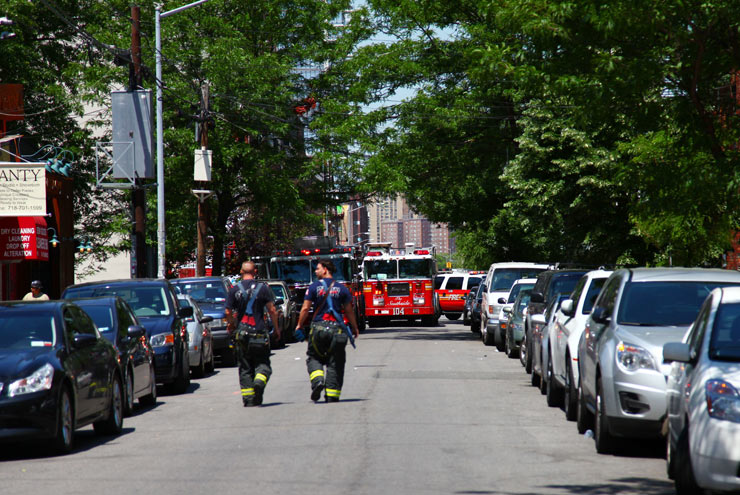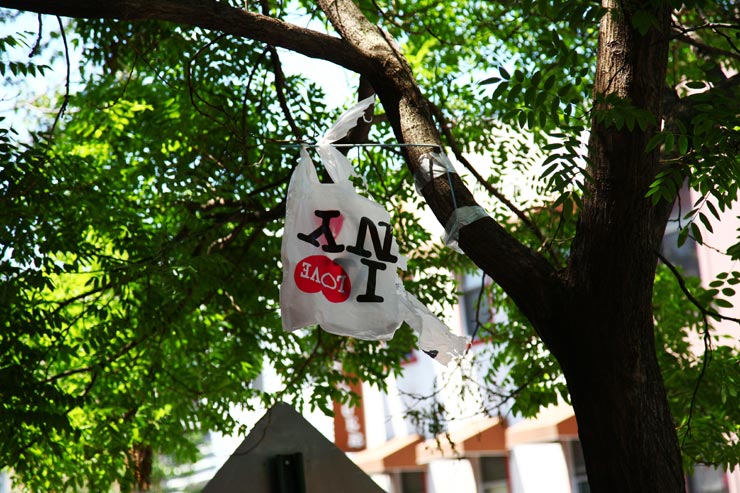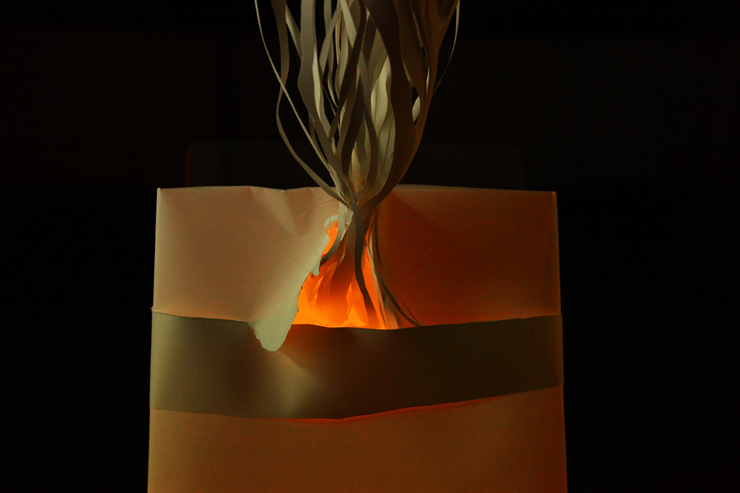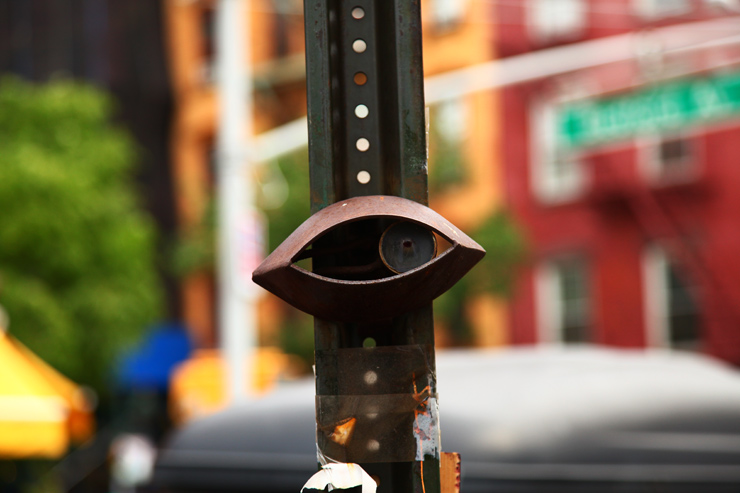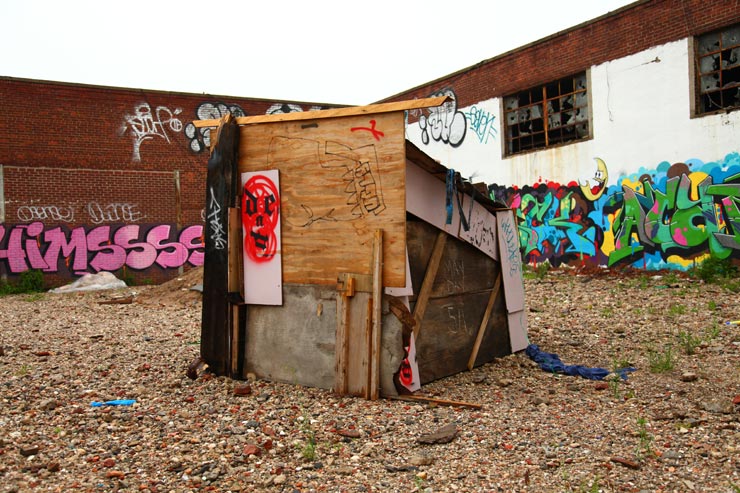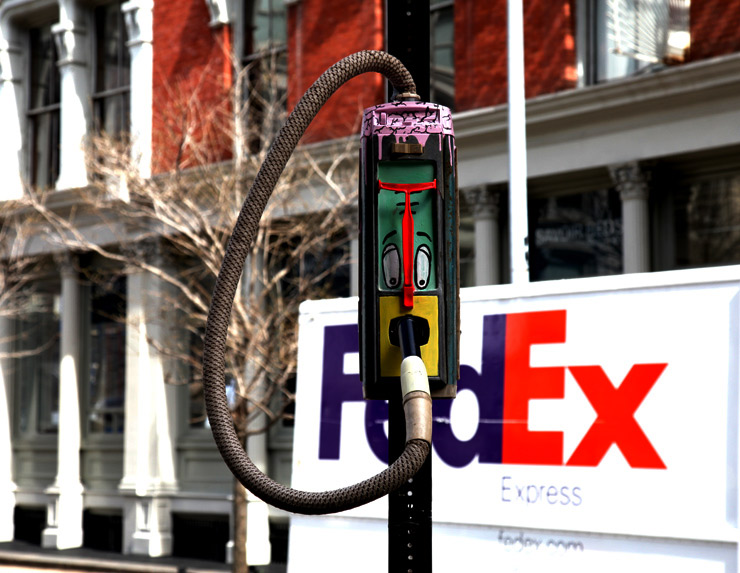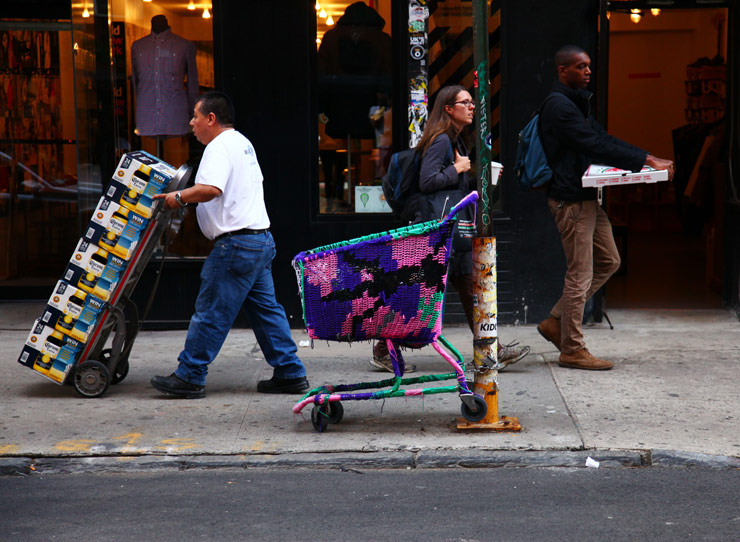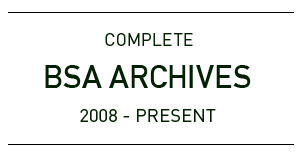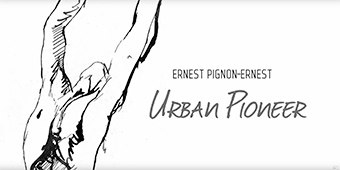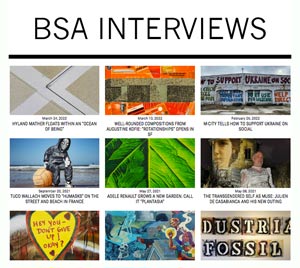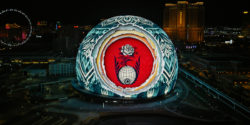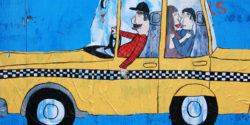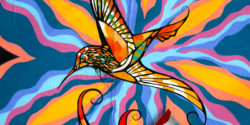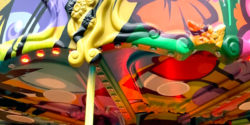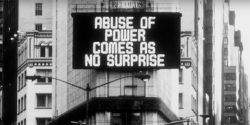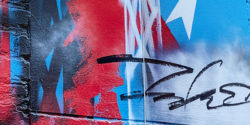Last Friday morning all was going normally on the streets of Williamsburg, Brooklyn as the cool, crisp breeze of a sunny May day made New York as it often is: Glorious. Up and down the sidewalk smartly dressed professionals hurriedly carried coffees and pushed baby carriages as meandering tourists stared quizzically at clean cut NYU students in their search for the fabled hipster scene that their travel guides had told them would be here.
Suddenly police activity seemed to hasten on the streets and police patrol cars were rushing to sidewalks and scattering flustered pedestrians. Within a matter of minutes Bedford Avenue was cordoned off with “CRIME SCENE” yellow tape from North 4th to North 7th streets and officers in various uniforms descended upon the neighborhood with fire trucks wailing and helicopters thundering.
Quickly word spread that there was a bomb scare. Possibly in a tree.
photo © Jaime Rojo
“Scare” is a relative word for New Yorkers, as police gently prodded curious rubberneckers to stand back and swept sleepy cafes clear of reticent morning journal doodlers. An impressive armamentarium of tools and gadgets were pulled from trucks and trunks and assembled in a somewhat semi-circular arrangement near a shady tree that bended gently back and forth with the breeze.
These officers’ firm and calm demeanor gave a sunny day a relaxed atmosphere, but the tension was still thick – a potential bomb was in the midst and protection was top priority. The offending piece in question hung from a thin metal arm duct-taped to the tree’s limb; the container was a simple deli grocery bag with the ubiquitous pledge of fealty to the city, “I Love NY” screen-printed on the front. The little bag swung gently as wires poked out from it’s handled top.
photo © Jaime Rojo
photo © Jaime Rojo
To photographers who document Street Art every day in this city, continuously scanning the urban environment for any manner of creative expression, this object might have caught an eye and been captured with a camera. But frankly, the competition for attention is fierce.
Williamsburg nearly birthed the Street Art scene here in the early 00s when artists called it home and every discipline of fine art transmuted itself into installation. A new sort of direct engagement with the public sphere took root and it continues to grow in cities around the world. No longer simply stencils, wheat-pasted paper or stickers on a news kiosk, in Brooklyn you are now likely to see more three dimensional pieces like a DarkClouds board bolted to a sign post, a steel REVS sculpture welded to a fence, a tiny match-stick Stikman embedded in the pavement, or a pink and purple camouflaged crocheted piece by OLEK covering an entire bicycle. For years local artist Leviticus has been reassembling discarded furniture, musical instruments and found objects and placing them on these sidewalks on Bedford Avenue to the indifference of the rivers of people walking by.
And let’s not forget so-called “conceptual” work, ever able to confound.
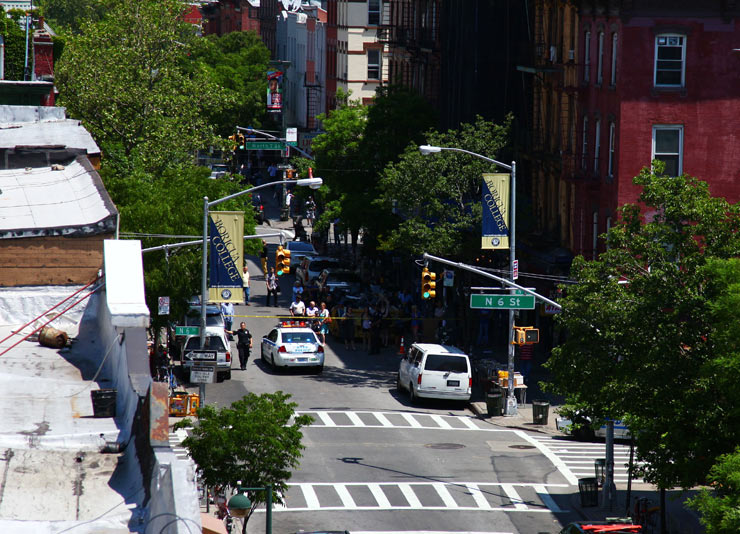
photo © Jaime Rojo
In the case of this piece, this non-bomb in a tree, the materials were very familiar to the public: A vellum plastic box, an “I Love New York” shopping plastic bag, duct tape, some wires. The materials? Non-threatening. Their arrangement and location: potentially threatening.
According to news reports, the artist Takeshi Miyakawa was arrested long after the scare was called off as he was discovered installing a second piece not far up the street. It appears he had planned an illuminated string of bags to pay a tribute of some sort to the city.
photo © Jaime Rojo
According to the New York Times and The Huffington Post, Mr. Miyakawa, 50 years old, was arrested and charged with two counts of first-degree reckless endangerment, two counts of placing a false bomb or hazardous substance in the first degree, two counts of placing a false bomb or hazardous substance in the second degree, two counts of second-degree reckless endangerment and two counts of second-degree criminal nuisance. He was also placed under psychological evaluation.
Few will rightly question the actions of the bomb squad to prevent a catastrophic event from taking place, and most would openly express thanks for their work that can put them at great risk. But art like this, and any sanctioned public art that goes through a more vetted process, does raise questions about its intersection with the law and ethics. In a time when almost anything is considered as possible art, it also could be considered a possible bomb.
Should an artist be held accountable for every possible interpretation of the work, despite its original intention? Can other evidence be considered before assigning guilt? Does an artist, particularly those who install work without permission, bear responsibility to consider it’s effect on public safety? During a time in our history that is permeated with vacillating levels of fear and anxiety, should we attempt to agree on some guidelines?
Online images of Miyakawa’s studio and coworkers and their methodical design plans for this installation make you think he’s probably not a criminal, just a kooky artist with a questionable judgement. Welcome to New York; that sort of thing is the norm where academic and creative investigation often pushes into unusual territory we haven’t been in before. It even appears his intentions were to cheer the public – an expression of love for his city. But one does wonder what affect a renewed surveillance of trees and signposts and street furniture might bring to a Street Art scene that doesn’t look like it has tired of exploring itself.
Takeshi Miyakawa “I Love New York” This is how the installation was left after it was dismantled by the police. (photo © Jaime Rojo)
Below are some examples of work on the street that are more than your run-of-the-can aerosol art.
In later winter this year artist Jean Seestadt created a series of installations in bus shelters and subway cars entitled “If You See Somethin;”. Her idea was to highlight the issue of objects that we encounter on our daily routine and as we use the public transportation system. Jean Seestadt. “If You See Somethin'” (photo © Jaime Rojo)
Jean Seestadt. “If You See Somethin'” (photo © Jaime Rojo)
Click here to read our full interview with Ms. Seestadt and to see more images of her installation.
An unknown artist installed a series of metal and glass “eye” sculptures in Williamsburg in 2007 and 2008. (photo © Jaime Rojo)
Here is a pair of BZBD shoes with LED lights in the soles for an installation a couple of weeks ago in Brooklyn. (photo © BZBD)
A shack installation in Brooklyn by an unknown artist. Or maybe it was a fort? (photo © Jaime Rojo)
Street Artist XAM creates and places bird feeders and dwellings all over the city. Some are fitted with solar panels and an LED light. (photo © Jaime Rojo)
Read our interview with XAM here.
RAE commonly uses discarded household items and vintage appliances to create his sculptures before bolting them to streets signs. (photo © Jaime Rojo)
OLEK has become well known for crocheting entire coverings for bicycles, strollers, sculpture, and even the Wall Street Bull. (photo © Jaime Rojo)
<<>>><><<>BSA<<>>><<<>><><BSA<<>>><><<>BSA<<>>><<<>><><BSA
Please note: All content including images and text are © BrooklynStreetArt.com, unless otherwise noted. We like sharing BSA content for non-commercial purposes as long as you credit the photographer(s) and BSA, include a link to the original article URL and do not remove the photographer’s name from the .jpg file. Otherwise, please refrain from re-posting. Thanks!
<<>>><><<>BSA<<>>><<<>><><BSA<<>>><><<>BSA<<>>><<<>><><BSA
Other Articles You May Like from BSA:
“They both see words as images,” says Shoe about graffiti writers and Medieval scribes in a 2013 interview with the BBC. His latest tome extrapolates this reverence for the letterform, an obsessive re...
Our weekly focus on the moving image and art in the streets. And other oddities. Now screening : 1. Jazoo Yang x TJ Choe: Strawberry House (South Korea) 2. Solo x Diamond via Grounder (...
Næstved Kunstby stands as a beacon for the preservation and celebration of graffiti culture, reflecting a deep respect for the evolution of street art from its origins in New York to its current glob...
Sometimes the eyes tell you a lot. In the case of masked people, its all you can rely on aside from posture and body language. Here in Cork, Ireland, the artist who calls himself Asbestos keeps...
Anarchists and lawlessness on the streets of New York? Where are you looking exactly? This is a narrative that charlatans like to slander our fair city with, where we spent 8 hours hanging out on...
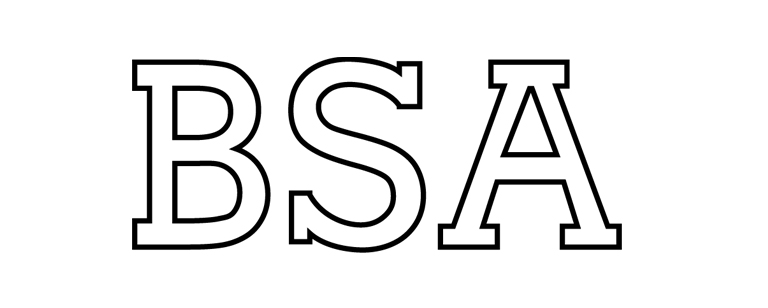 BROOKLYN STREET ART LOVES YOU MORE EVERY DAY
BROOKLYN STREET ART LOVES YOU MORE EVERY DAY